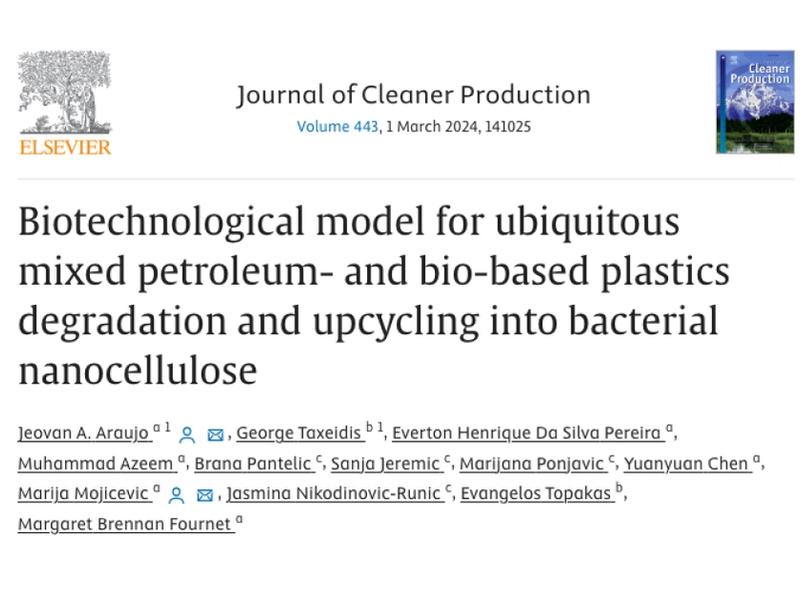Biotechnological model for ubiquitous mixed petroleum- and bio-based plastics degradation and upcycling into bacterial nanocellulose

In this study, a model system for the sustainable management of mixed (petro-bio)plastic waste is presented, demonstrating a biotechnological route through synergy-promoted enzymatic degradation of PET–representing petrochemical polyester plastic–mixed with thermoplastic starch (TPS)–as a model bioplastic. Leaf-branch compost cutinase (LCCICCG) and commercial amylase (AMY) deliver effective depolymerization of this mixed (petro-bio)plastic material, with subsequent bio-upcycling of the mixed waste stream into bacterial nanocellulose (BNC) by Komagataeibacter medellinensis. Compared to LCCICCG and AMY, the LCCICCG/AMY combined treatment synergistically produced a 2.6- and 4.4-fold increase in enzymatic decomposition at 70 °C in four days, respectively, yielding sugars and terephthalic acid (TPA) as the main depolymerization building blocks. Bio-upcycling of post-enzymatic degradation hydrolysates resulted in a high BNC yield of 3 g/L after 10 days.
Read more here:
https://www.sciencedirect.com/science/article/pii/S0959652624004724?via%3Dihub